With three U.S. diplomats expected to arrive in coup-torn Honduras, interim President Roberto Micheletti said Tuesday that negotiations on ending a four-month political crisis must wait until after Nov. 29 elections.
COFADEH reports increased human rights violations
21 assasinated, four of whom are teachers; 4,234 denunciations of violations of human rights, and 114 citizens accused of sedition.
Foreign Policy in Focus - Coup's Impact on Honduran Women
Salvador Zuniga, of the Civic Council of Popular and Indigenous Organizations of Honduras (COPINH), believes the June coup was prompted in part by a socially conservative religious reaction to feminist organizing around reproductive rights. "What I can say is that the feminist compañeras (companions or comrades) are in greater danger than any other organization," he says.
A young mother named Irma Villanueva made her own story public in mid-August. She told Radio Progreso how she had been arrested at a recent demonstration and then raped by four policemen. One of the rapists implied they were punishing Villanueva for her political activity: "[N]ow you're going to see what happens to you for being where you shouldn't be."
Villanueva is not alone. Honduran Feminists in Resistance, a group formed immediately after the coup, reported to the Latin American Herald Tribune on September 3 that they had documented 19 cases of rape committed by Honduran police. Honduran feminists believe that this number is probably conservative.
NACLA Report on the Americas - Honduran Coup Regime and Landowning Elites Enlist the Support of Foreign Paramilitaries
A United Nations human rights panel issued a warning concerning the presence of contracted foreign paramilitary forces operating inside the troubled country. According to the UN Working Group on the use of mercenaries, an estimated 40 members of the infamous United Self-Defense Forces of Colombia (AUC) have been hired by wealthy Honduran landowners to defend themselves "from further violence between supporters of the de facto government and those of the deposed President Manuel Zelaya."
As Zelaya's Foreign Minister Patricia Rodas notes, it is widely believed that these mercenaries are being used to "do the dirty jobs that the armed forces refuse to do." In addition, the panel established direct links between President Roberto Micheletti's coup-installed government and foreign paramilitaries, stating that an additional group of 120 hired soldiers from several countries throughout the region had been created to provide support for the coup regime. This report confirms allegations made by the Colombian newspaper El Tiempo back in September.
Noting that Honduras is a signatory to the international convention against the use of mercenaries, the panel, comprised of a diverse array of security and human rights experts, expressed its deep concern and called upon the Honduran golpistas to take action against the use of paramilitaries inside Honduran territory.
The AUC, essentially an umbrella organization of various right-wing death squads, many of which also collaborate with Colombian drug traffickers, is one of the region's most notorious paramilitary organizations and is classified as a terrorist group by the U.S. State Department.
The AUC has also been directly and indirectly linked to numerous powerful elites and business interests in Colombia, including many close to President Álvaro Uribe's administration, and is said to operate "parallel" to the Colombian military. Accordingly, the linkages connecting the Honduran military regime, powerful members of the country's landed elite, and right-wing Colombian paramilitaries are extremely troubling but not altogether surprising.
Back on July 4, before any evidence of direct collaboration with Colombian narco-terrorists had emerged, journalist Al Giordano noted that the Honduran regime was in the process of making itself into a "rogue narco-state," shutting itself off from the international community while allying with the most shadowy and reactionary sectors of the Latin American right. Among its prominent supporters have been Rafael Hernández Nodarse, a millionaire arms trafficker with ties to Cuban terrorist Luis Posada Carriles, and Otto Reich, a Washington super-hawk who played a prominent role in Iran-Contra affair. All these parties share an agenda of preserving unjust wealth and resource distributions while waging total war against social democracy using any means necessary. Honduras merely represents the most recent arena in which this war is being waged.
The right's problem with Zelaya has never been that he tried to reform his country's deeply flawed constitution ("the worst in the world," according to Costa Rican President Óscar Arias), but because, according to Micheletti himself, he "became friends with Daniel Ortega, Chávez, Correa, Evo Morales. ... He went to the left." In other words, Micheletti is using the same tactics of "guilt by association" that his AUC allies use to justify their violence, only this time the "guilt" consists of association with other popular, democratically elected heads of state in the region. Nevertheless, the message and the effect are still the same: If you oppose us, and what we stand for, we will take you down with force.




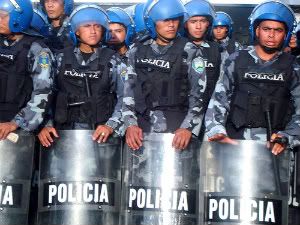
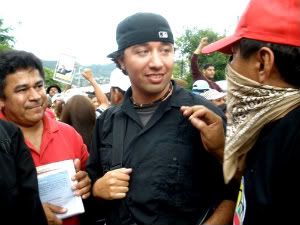
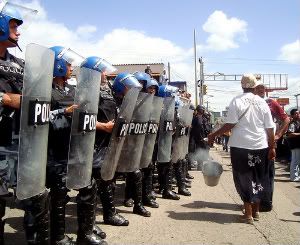
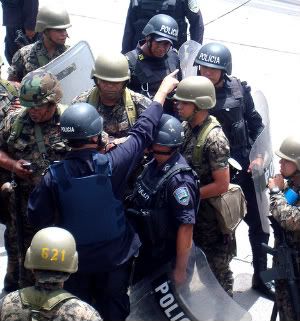
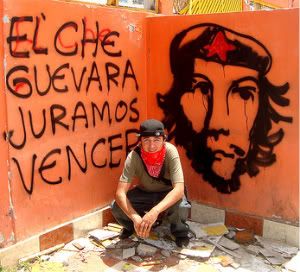
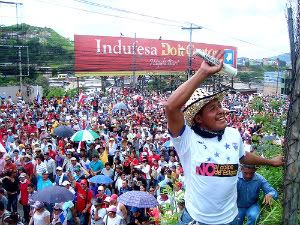
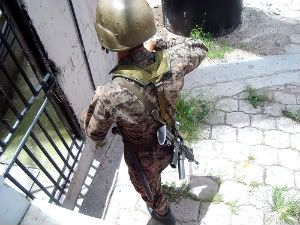
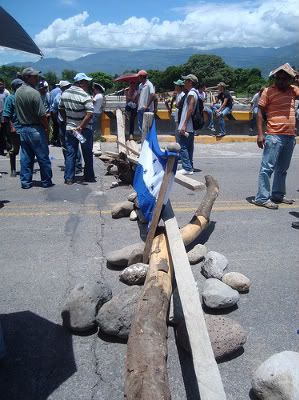
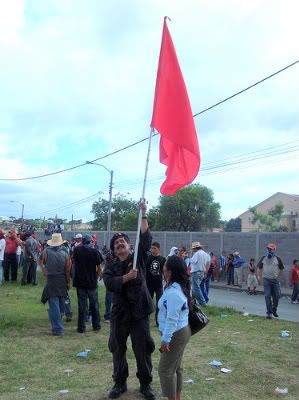
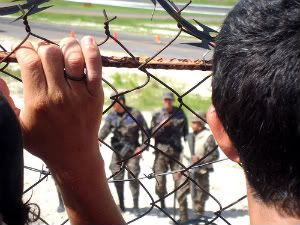
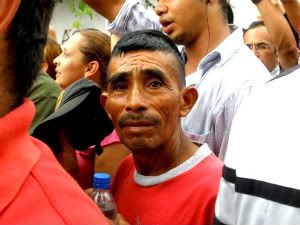
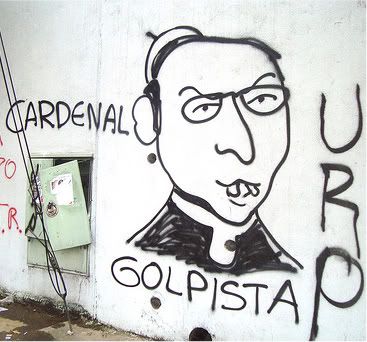
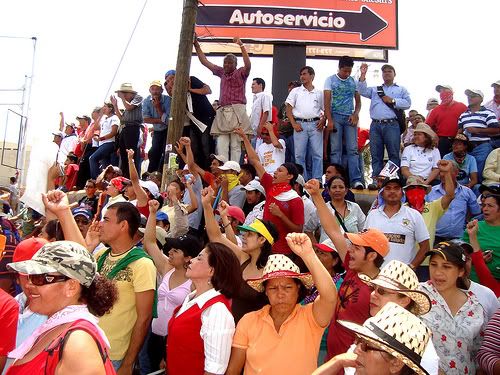
No comments:
Post a Comment